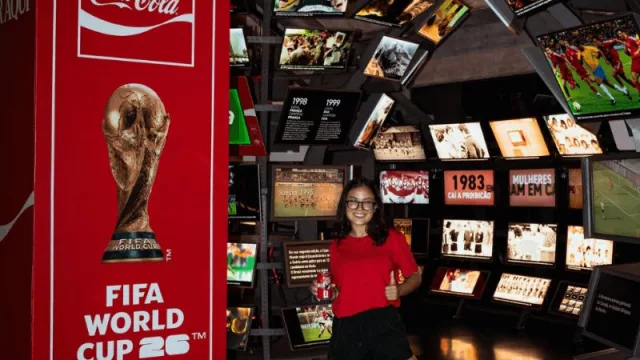In high-level corporate environments, it is common to use English acronyms to refer to key executives within an organization. While the term CEO (Chief Executive Officer) is widely known, there are other acronyms that are less familiar outside of their specific domains.
In this article, we will unveil the meaning and functions of each of these key roles, exploring the fascinating world of COOs, CCOs, CMOs, CIOs, CFOs, CTOs, and the other CCO or HOD.
COO – Chief Operating Officer: The operations coordinator!
The COO, or Director of Operations, is responsible for synchronizing a company's processes and operations. Acting as the link between different areas, their responsibility lies in ensuring the coordinated functioning of all teams to achieve project success. Under the direct leadership of the CEO, the COO oversees daily workflows, ensuring they follow the established path and objectives. Their responsibilities include optimizing available resources, both financial and human, in order to achieve higher performance. They work closely with the CFO and other executives responsible for logistics, sales, and human resources. The COO has a comprehensive view of the company's operations, allowing them to detect potential problems and anticipate needs.
CCO – Chief Communications Officer: The master of communication!
The CCO of a company is primarily responsible for communications. Although the position may have different titles, such as Director of Communication or Director of Institutional Relations, their role is to design and oversee the execution of the company's communication strategy to all stakeholders. Reporting to the CEO, the CCO works closely with other key executives such as the CMO and CTO. Their objective is to ensure that communication flows both internally and externally within the organization. The CCO plays a crucial role in fostering collaboration between departments and achieving common goals.
CMO – Chief Marketing Officer: The marketing architect!
The Chief Marketing Officer or CMO is the executive in charge of defining and overseeing the execution of a company's sales, promotion, and advertising strategy. Their goal is to ensure that products or services reach the target audience, analyze results, and find ways to maximize benefits and attract new customers. The CMO analyzes the market and develops specific plans for the company's products or services, making decisions regarding pricing and promotions. They work closely with the CEO, COO, and CCO. In some companies, the CMO and CCO roles may be performed by the same person, but they have separate teams to execute sales and communication strategies.
CIO – Chief Information Officer: The information magician!
The Chief Information Officer or CIO is the executive responsible for maximizing a company's performance through the use of information technologies (IT). The CIO determines which technologies will be used within the company, both in terms of hardware and software systems. They are also responsible for creating and approving IT investment budgets, establishing quality control standards and processes to drive organizational efficiency. The CIO reports directly to the CEO and works closely with other department heads to ensure compliance with established standards and to maximize the benefits of implemented technologies.
The CIO's role is to ensure the seamless integration of technology into the company's operations. They are responsible for managing IT infrastructure, cybersecurity, data management, and software development. The CIO plays a crucial role in leveraging technology to improve business processes, enhance productivity, and drive innovation. They work closely with the CEO and other executives to align technology initiatives with the company's overall strategic goals.
CFO – Chief Financial Officer: The guardian of numbers!
The Chief Financial Officer or CFO is primarily responsible for the financial planning and management of a company. This executive oversees treasury operations, makes decisions regarding financing and debt, and analyzes operational and management results to ensure budget, plans, and objectives are met. The CFO works closely with the CEO, providing updates on the business's financial status and evaluating the viability of investments while identifying measures to mitigate risks.
CTO – Chief Technology Officer: The technological visionary!
The Chief Technology Officer or CTO is the technological leader within a company. While their role overlaps with that of the CIO, their focus is on strategic planning and the application of technology in the company's operations. The CTO develops procedures and directs technology to enhance the products and services offered by the company. Depending on the organization, this executive may also oversee engineering and technological development departments.
And the new star of the professional world, the "Chief of Culture Officer," C-CO (more commonly known as the Head of Culture - HOC) - The integration of the heart, mind, and emotions of the company!
While this position is not as common as the previously mentioned ones, it is gaining increasing relevance in modern organizations. The role of the CCO, sometimes differentiated as C-CO, is to ensure that a company's organizational culture is solid, coherent, and aligned with its values and goals.
The C-CO or Head of Culture is primarily responsible for fostering a positive, inspiring, and collaborative work environment. Their objective is to promote corporate values, establish behavioral norms, strengthen the company's identity, and enhance employee satisfaction and engagement. Additionally, the C-CO is in charge of developing training and personal development programs that promote employee growth and well-being.
In a time when corporate culture and employee engagement are crucial elements for organizational success, the demand for professionals in the role of C-CO or HOC has significantly increased. Companies are increasingly recognizing the importance of building a strong and appealing culture to retain talent and attract new candidates.
The C-CO (or CCO, differentiated from the Chief Communications Officer) works closely with other leaders in the organization, such as the CEO and HR directors, to ensure that the organizational culture is integrated into all aspects of the business. This role requires leadership skills, empathy, effective communication, and a deep understanding of human dynamics in the workplace.
Here, we provide you with exclusive information about this role, which is highly needed by companies in Anglo Latam but has limited available information.
The key importance of the Head of Culture
¿Por qué en Latinoamérica el Head de cultura no es un rol principal? (parte II)
To contact us regarding content at Infonegocios.Miami, you can also reach us at [email protected]












Tu opinión enriquece este artículo: